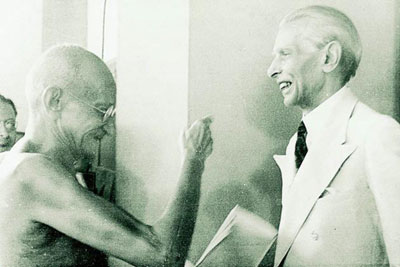 Thiruvanathapuram:
Thiruvanathapuram: Without Mahatma Gandhi, free India would have fragmented further while Pakistan's existence is "difficult to conceive" without Mohammad Ali Jinnah, says a British historian who has contrasted the two leaders in his latest book.
The effect of individuals in historical developments can be debatable but the fact of one free India and Pakistan is difficult to imagine without these two leaders, Roderick Matthews, author of "Jinnah vs Gandhi", said in an interview at the just-concluded 5th Kovalam Literary Festival here.
Matthews said there were alternatives to Gandhi within the Congress but none of them had his unique style.
"If there was no Gandhi, there were three or four Congress leaders who could have stepped forward. Motilal Nehru, C.R. Das.... or even (Subhas Chandra) Bose, could have replaced the Gokhale-Tilak generation in the 1920s," the Oxford-educated Matthews said.
"It is the 'What If' game.... but it is inconceivable that they could have achieved what Gandhi did. Gandhi held no political office, had a light touch and tended to stay back, had his deep personal favourites and inclinations but still managed to keep the Congress together...kept (Jawaharlal) Nehru and (Vallabhbhai) Patel in the party," he added.
"This enabled there would be a Union of India, instead of five or six parts which could have emerged had the powerful provincial leaders - in Punjab or Bengal, for instance - held sway."
Where Gandhi failed, according to Matthews, was not enabling the Congress to remain a 'parliament of India', as he wanted, instead of letting it become only a political party.
"It's difficult to say when the Congress became a political party...it could be in 1911, or in 1928, when the (Motilal) Nehru Report came out, or even in 1937 (after provincial elections under the Government of India Act, 1935) and saw its priority change to fighting the Muslim League rather than the British," he said.
"I did talk about the 'Great Men' theory in an early draft of my book but subsequently left it out," admitted Matthews, referring to the 19th century theory seeking to explain history on the actions of "great men", or influential individuals utilising their charisma, intelligence, or political skills to create a decisive impact on their times.
"But it is difficult to conceive of Pakistan without Jinnah.... there was no other Muslim leader - who were either sectarian or provincial figures - of the times who could have thought of Pakistan. No Jinnah, no Pakistan," he said.
"Muslim leaders from Punjab, the United Provinces and Bengal would have been happy with a federation. In a few of these cases, they were already running their provinces. But it was Jinnah, who used his nationalist training and Muslim objective - of ensuring their political and economic rights, not impossible in majority rule - to achieve his goal of Pakistan," said Matthews.
The historian does not believe it was a desire for personal power that drove Jinnah, for if that had been the case, he could have easily cut a deal with the Congress.
The intention of Matthews - whose first book seeks to debunk common myths about the British Raj - was not to portray Jinnah as "bad" or Gandhi as "good" or the other way round but only to balance their strengths and weaknesses.
But, ultimately, as Matthews said in a discussion with author Farukh Dhondy at the festival earlier, both Gandhi and Jinnah failed to achieve the futures they had envisaged for their new nations.
Jinnah had wanted a particular kind of secular Pakistan - not dominated either by Hindus or the British and filled with Muslims, though he made no attempt to define what a Muslim nation was, he said.
Gandhi wanted a spiritually pure country full of married celibates, no capitalist ventures... spinning wheels in every house and everyone meditating on the oneness of the universe, he said, to peals of laughter from the audience.
"Today, Pakistan seems to have got the worst of Jinnah and the best of Gandhi," said Matthews.
 Thiruvanathapuram: Without Mahatma Gandhi, free India would have fragmented further while Pakistan's existence is "difficult to conceive" without Mohammad Ali Jinnah, says a British historian who has contrasted the two leaders in his latest book.
Thiruvanathapuram: Without Mahatma Gandhi, free India would have fragmented further while Pakistan's existence is "difficult to conceive" without Mohammad Ali Jinnah, says a British historian who has contrasted the two leaders in his latest book.